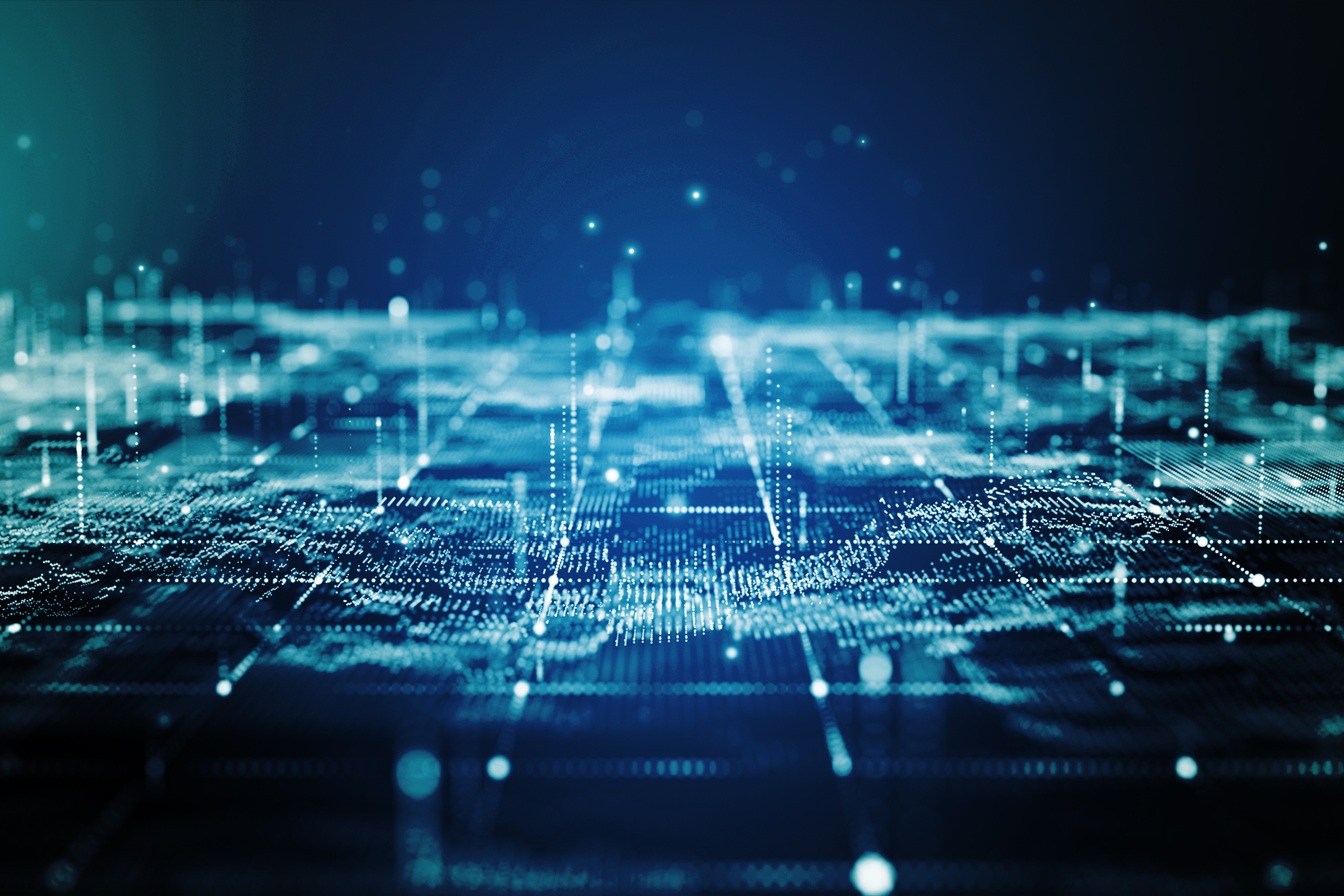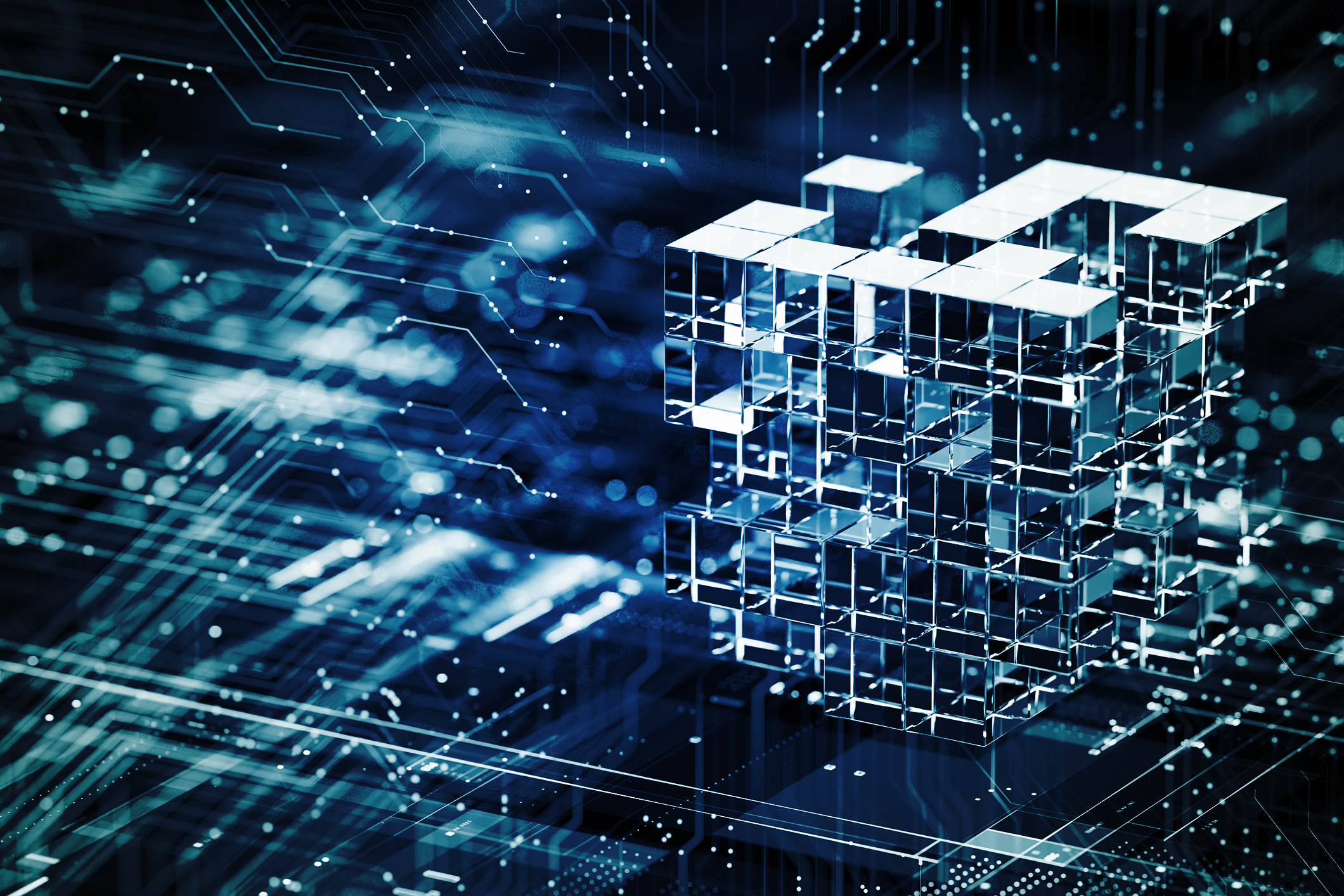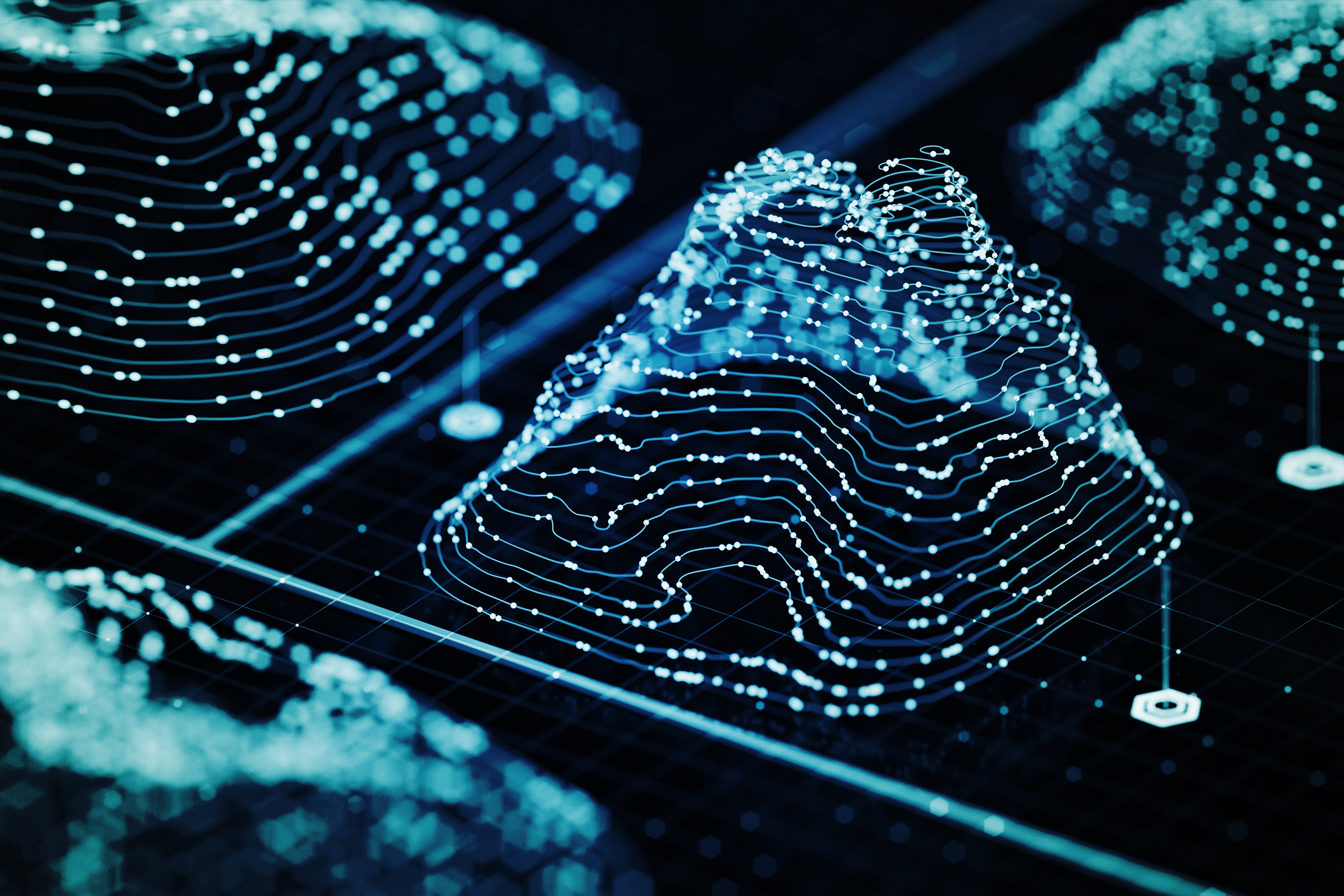
KPMG 2025 Futures Report
This is your leadership moment
We are entering an era of transformation that will reshape industries, economies, and global power dynamics at an unprecedented pace. The next five years will see more change than the last 30, fueled by the convergence of influences redefining every sector of this competitive landscape.
The KPMG 2025 Futures Report is a strategic guide to emerging trends for decision-makers navigating their organizations through uncertainty. We offer a structured framework designed to help leaders move from reactive responses to disruption toward a posture of proactive foresight and transformational planning and investment.

KPMG 2025 Futures Report
Unlock the insights you need to lead in a rapidly evolving landscape. The 2025 Futures Report delves into seven pivotal areas of innovation: Artificial Superintelligence, Computing Infrastructure, Quantum Computing, Space Economy, Digital Assets, Environmental Resilience, and Advanced Manufacturing.
What you’ll discover inside the report
Gain valuable knowledge from industry thought leaders to stay ahead of the curve.
Implement a phased approach to future planning with practical steps tailored for business leaders.
Understand the impact of technological innovation on society and your business.
Learn the strategies that are driving success for industry leaders and apply them to your own organization.
Where forces converge, signals emerge.

Forces create signals. Signals shape trends. Trends guide decisions.
Our team examines where social, technological, economic, and political pressures are converging—and what early signals they generate. We track these signals over time, identifying meaningful patterns that reveal where change is building momentum. By distilling this complexity into clear, time-based implications, we help leaders understand what’s plausible, what’s coming into view, and what actions might matter most.
From patterns to practice.
Our structured foresight process tracks signal clusters over time, analyzing their alignment across Social, Technological, Economic, and Political (STEP) dimensions. This method uncovers critical insights that drive scenario planning, investment decisions, and the development of resilient business strategies. These insights go beyond mere observations; they are essential inputs for shaping your organization's future.
Built for decision-makers. Informed by signal intelligence.
This report is a decision-making reference to help you move forward with clarity, even when the future feels uncertain. The 2025 Futures Report helps leaders navigate the fusion of technologies, policies, and social transformations. We track signals and analyze convergences. We translate insight into implications for action so you can plan with confidence across every time horizon.

Path to ASI (Artificial Superintelligence)
AI is rapidly evolving from passive tools to autonomous agents that can sense, reason, and act independently. This shift, driven by foundational models, multimodal integration, and emerging agentic systems, is positioning AI as the orchestration layer of enterprise technology and a major step toward superintelligence. Reaching that next level will demand more breakthroughs as well as a swift societal and political adaptation to ensure safe, stable progress.

Computing infrastructure
AI is revolutionizing enterprise computing, driving up workloads, costs, energy use, and supply chain pressures. This surge in demand strains the power grid and regulatory systems, raising urgent questions about resilience and capacity. In response, organizations are prioritizing power efficiency, sustainability, and multi-cloud strategies as they shift toward AI-optimized chips, edge computing, and modular data centers. As intelligent systems take center stage, infrastructure is being redefined from a cost center to a strategic advantage.

Quantum computing
Quantum technology is only beginning to make a real-world impact. Rapid hardware advancements are accelerating fault-tolerant systems, prompting industries like finance, pharma, and logistics to rethink how they utilize and secure data. As post-quantum cryptography (PQC) gains traction at national and enterprise levels, the urgency to safeguard information is growing. Meanwhile, breakthroughs in quantum sensing and materials are driving progress in precision health, navigation, and energy. It’s essential to prepare for quantum advantage now, before its influence becomes widespread.

Space economy
Once a government-dominated domain, the space economy has evolved to a place where private industry is now a key player. The commercialization of space is gaining momentum, driven by lower launch costs, reusable rockets, and miniaturized satellites. This shift is enabling new business models in communications, earth observation, and in-orbit manufacturing. As the ecosystem expands beyond traditional players, new opportunities are emerging across adjacent markets. Space-derived data is already transforming industries and enhancing cybersecurity, supply chains, and climate resilience.

Digital assets
Cryptocurrency and blockchain technologies are redefining value creation, transfer, and ownership within the global economy. Financial institutions are now incorporating tokenized products and blockchain-backed efficiencies into the core of modern finance, and as regulatory clarity improves, adoption is accelerating. This digital transformation presents exciting opportunities and complex challenges as it becomes integral to the evolving financial services infrastructure.

Environmental resilience
Climate volatility is reshaping the modern business environment. Organizations are now adopting agile energy systems, microgrids, AI-driven risk modeling, and carbon removal. Investor pressure and regulation risks are influencing decisions across finance, supply chains, and workforce planning. Companies are increasingly aligning climate resilience with operational stability, and while progress varies by sector, there is an accelerating shift toward more resilient, climate-informed organizational planning.

Advanced manufacturing
A new era of high-tech manufacturing is emerging, driven by geopolitical shifts, supply chain risks, and government incentives. Industries are reshoring production and modernizing operations and transforming factories into smart, competitive systems. Investment is accelerating in semiconductors, clean energy, and automation while strategies adapt to an AI-augmented future. As sustainability and resilience become priorities, companies are moving from labor-intensive offshore models to capital-intensive, tech-driven domestic production.
Path to ASI

Path to ASI (Artificial Superintelligence)
AI is rapidly evolving from passive tools to autonomous agents that can sense, reason, and act independently. This shift, driven by foundational models, multimodal integration, and emerging agentic systems, is positioning AI as the orchestration layer of enterprise technology and a major step toward superintelligence. Reaching that next level will demand more breakthroughs as well as a swift societal and political adaptation to ensure safe, stable progress.
Computing infrastructure

Computing infrastructure
AI is revolutionizing enterprise computing, driving up workloads, costs, energy use, and supply chain pressures. This surge in demand strains the power grid and regulatory systems, raising urgent questions about resilience and capacity. In response, organizations are prioritizing power efficiency, sustainability, and multi-cloud strategies as they shift toward AI-optimized chips, edge computing, and modular data centers. As intelligent systems take center stage, infrastructure is being redefined from a cost center to a strategic advantage.
Quantum

Quantum computing
Quantum technology is only beginning to make a real-world impact. Rapid hardware advancements are accelerating fault-tolerant systems, prompting industries like finance, pharma, and logistics to rethink how they utilize and secure data. As post-quantum cryptography (PQC) gains traction at national and enterprise levels, the urgency to safeguard information is growing. Meanwhile, breakthroughs in quantum sensing and materials are driving progress in precision health, navigation, and energy. It’s essential to prepare for quantum advantage now, before its influence becomes widespread.
Space economy

Space economy
Once a government-dominated domain, the space economy has evolved to a place where private industry is now a key player. The commercialization of space is gaining momentum, driven by lower launch costs, reusable rockets, and miniaturized satellites. This shift is enabling new business models in communications, earth observation, and in-orbit manufacturing. As the ecosystem expands beyond traditional players, new opportunities are emerging across adjacent markets. Space-derived data is already transforming industries and enhancing cybersecurity, supply chains, and climate resilience.
Digital assets

Digital assets
Cryptocurrency and blockchain technologies are redefining value creation, transfer, and ownership within the global economy. Financial institutions are now incorporating tokenized products and blockchain-backed efficiencies into the core of modern finance, and as regulatory clarity improves, adoption is accelerating. This digital transformation presents exciting opportunities and complex challenges as it becomes integral to the evolving financial services infrastructure.
Environmental resilience

Environmental resilience
Climate volatility is reshaping the modern business environment. Organizations are now adopting agile energy systems, microgrids, AI-driven risk modeling, and carbon removal. Investor pressure and regulation risks are influencing decisions across finance, supply chains, and workforce planning. Companies are increasingly aligning climate resilience with operational stability, and while progress varies by sector, there is an accelerating shift toward more resilient, climate-informed organizational planning.
Advanced manufacturing

Advanced manufacturing
A new era of high-tech manufacturing is emerging, driven by geopolitical shifts, supply chain risks, and government incentives. Industries are reshoring production and modernizing operations and transforming factories into smart, competitive systems. Investment is accelerating in semiconductors, clean energy, and automation while strategies adapt to an AI-augmented future. As sustainability and resilience become priorities, companies are moving from labor-intensive offshore models to capital-intensive, tech-driven domestic production.

KPMG 2025 Futures Report
Unlock the insights you need to lead in a rapidly evolving landscape. The 2025 Futures Report delves into seven pivotal areas of innovation: Artificial Superintelligence, Computing Infrastructure, Quantum Computing, Space Economy, Digital Assets, Environmental Resilience, and Advanced Manufacturing.
Discover more insights

Quantifying the GenAI opportunity
Discover how GenAI can unlock a massive, untapped opportunity for businesses, and learn what it takes to capture its value.

Private equity in the commercial space sector
The timeless allure of space beckons a new category of explorers: private equity firms and innovative sectors aiming to commercialize the cosmos.

KPMG AI Quarterly Pulse Survey
Enterprises shift from AI experimentation to large-scale production in 2026
Meet the authors
